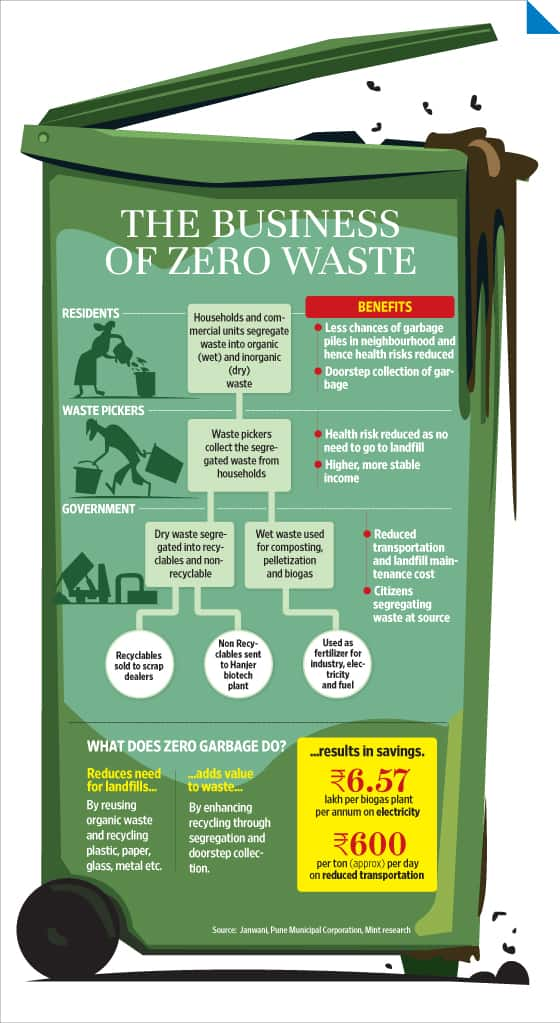Waste no more
India is likely to see its waste generation triple to 376,639 tonnes per day by 2025. The solution to managing this could lie in segregating the waste.
 Premium
Premium
New Delhi: Sheetal Pawar, a housewife who lives in the Katraj ward, or prabhag as it is known locally, of Pune, began segregating the waste generated by her household into dry (or inorganic) and wet (organic) waste two years ago. It was part of a pilot initiated jointly by four organizations in Pune to move towards zero waste developed on the philosophy of recycling garbage—a practice already in vogue in metropolises like New York and London.
According to Pawar it was not a difficult practice to weave into her daily routine; while the organic waste including vegetable peel, egg shells and leftover food is deposited in a green coloured bin, all the inorganic waste like paper, plastic and aluminium are placed in a white bin.
The waste collected from each home is no longer dumped in a landfill. Instead, they are diverted as raw material for biogas, composting and waste-to-energy plants, resulting in attendant savings besides reduction in the volume of household waste.
“We have been able to save ₹ 60,000-70,000 on transportation costs per month as all the waste does not got to the landfill. Also, we save ₹ 6. 57 lakh on electricity costs for street lights per biogas plant," says Su
Naim Keruwala, project consultant at Janwani, a not-for-profit, one of the organization involved in the implementation of the Katraj initiative, said the pilot was started as there was an outcry in the villages adjoining the landfills.
Pune is not the only city where people living near a landfill site have protested, said Ravi Agarwal, founder and director of Toxics Link, a not-for-profit group that works on waste issues.
The key to managing municipal solid waste is segregation says Jagtap.
Unlock a world of Benefits! From insightful newsletters to real-time stock tracking, breaking news and a personalized newsfeed – it's all here, just a click away! Login Now!



